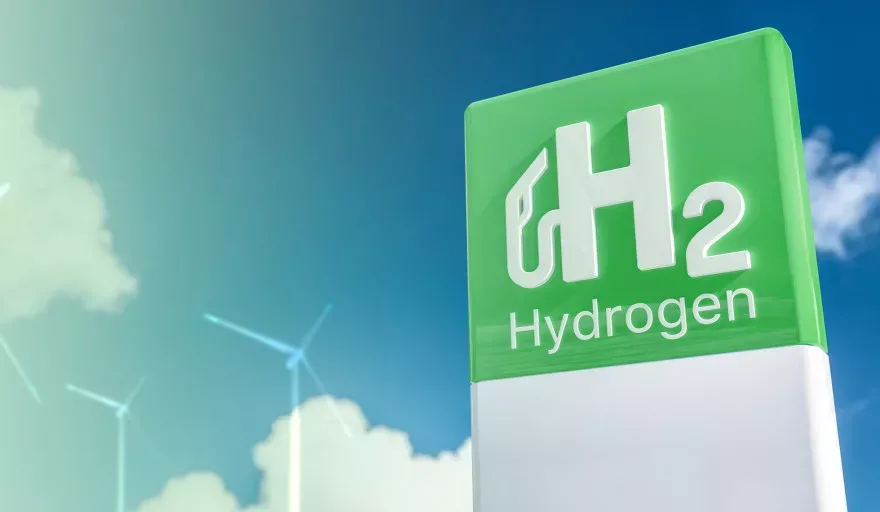With the potential to rapidly decarbonise industry and transport, efforts to unleash green hydrogen are ramping up in Africa.
GREEN HYDROGEN ON THE HORIZON IN AFRICA
From steel and chemicals to shipping and trucking, green hydrogen has been identified by major energy transition pathways as one of the world’s most credible clean energy solutions.
Produced with renewable power, global confidence has grown in the role of green hydrogen, the price of which is soon expected to become cost-competitive with emissions-abated fossil fuels, such as natural gas.
In the private sector, there is an estimated US$200 billion investable pipeline of green hydrogen projects currently being developed, according to The Hydrogen Council; this is underpinned by emerging policy leadership in the likes of Europe, North America, and Asia, such as India’s forthcoming mandate for green hydrogen adoption in refining and fertiliser production.
As the price of green hydrogen declines and demand continues to expand, decarbonisation will be spurred further by substantial funding support from developed countries, and targeted domestic fiscal policies.
In Africa, many countries are well-suited to develop green hydrogen, given the large swathes of non-arable land on the continent and its wealth of renewable energy potential in the form of solar and wind. Indeed, if the vast opportunities presented by green hydrogen aren’t already in African hands, then they are certainly within reach.
As well as enhancing access to clean energy, green hydrogen could generate new jobs in the zero-emission economy. In South Africa, for example, the deployment of 10 gigawatts (GW) of electrolysis capacity in the Northern Cape, coupled with around 500 kilotonnes of hydrogen per year by the end of the decade, is forecast to create 30,000 jobs per year by 2040.
NAMIBIA’S PLAN
US$9.4 billion green hydrogen project, meanwhile, is expected to create 15,000 jobs during construction and 3,000 permanent positions, 90 percent of which are to be filled by Namibians.
COOPERATION AND COLLABORATION
Likewise, green hydrogen could provide public health benefits such as cleaner air, promote new green industries and wealth creation, and open up new African export revenue streams, which offer a breakthrough opportunity to develop this burgeoning new sector.
Mass production could also unlock renewable energy and green hydrogen supply chains, at a scale significant enough to further Africa’s wider economic growth and electrification. The installation of four global scale green hydrogen projects, for instance, would more than double Africa’s renewable energy capacity as of 2020.
However, the development of green hydrogen at scale will require cooperation and collaboration across government ministries, international organisations, financial institutions, project developers and financiers, and businesses alike.
It will take a concerted effort from this diverse set of public and private sector stakeholders to grasp the opportunities posed by a new African green hydrogen industry, and deliver on its abundant potential. Equally, effective public and private sector collaboration will be necessary to rapidly mobilise investment and project development, to produce the green hydrogen quantities needed to meet set decarbonisation targets.
As well as offering expertise, capacity and access to capital, visionary private sector partners can work with host governments and local and regional institutions to strengthen permitting processes and green hydrogen project structures, that deliver on national and regional priorities for sustainable development and economic growth.
Governance will also be key, with transparency and accountability integral to ensuring the green hydrogen sector avoids the various pitfalls that have plagued the continent’s extractive industries for so long.
SUPERCHARGING GREEN HYDROGEN
A broad base of mission-aligned, collaborative public and private sector partners can send a strong signal to policymakers in developed countries, that equitable, lasting industrial developing outcomes can be worked towards with the adoption of green energy.
Connecting existing initiatives and leadership efforts with the potential to generate further industry awareness, opportunities and action, is the newly launched Africa Green Hydrogen Alliance (AGHA).
With eyes on becoming a clean energy leader, AGHA comprises six countries – Kenya, South Africa, Namibia, Egypt, Morocco, and Mauritania – who formally launched the Alliance at the first-ever Green Hydrogen Global Assembly in Barcelona in May 2022.
The collaboration fostered between AGHA members is set to create a sustainable enabling environment for the development of green hydrogen. This includes the development of public and regulatory policy, capacity building, financing and certifications needs to mobilise green hydrogen production for domestic use and export.
With hopes to supercharge green hydrogen projects in Africa, and accelerate the transition from fossil fuels to new, sustainable technologies that open up access to clean, affordable energy supplies for all, the launch of AGHA marks a first important step in driving this development in Africa.
The six founding members are set to make the Alliance a platform for workstream collaboration, green hydrogen project synergies, research and development, as well as working with the private sector, development finance institutions, and civil society.
Following initial discussions at last year’s COP26 summit, AGHA is now inviting more countries to join in making the African continent a global frontrunner in the green hydrogen development race.
AGHA’s efforts to galvanise the international community are in response to the opportunities created by lower-cost renewables, fast-developing electrolyser technology, and signs in some major markets that green hydrogen demand is likely to emerge at scale this decade.
Green hydrogen is key to Africa’s clean energy transition, and AGHA is tasked with accelerating its development and deployment.


























